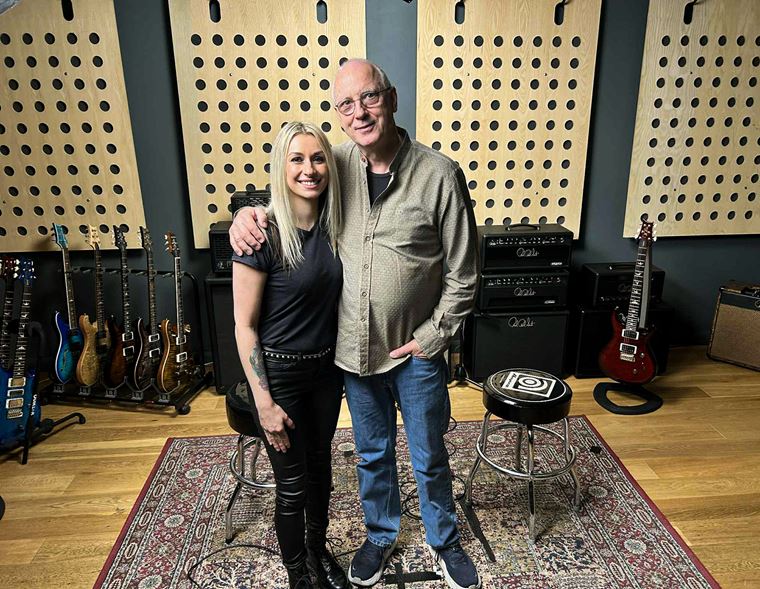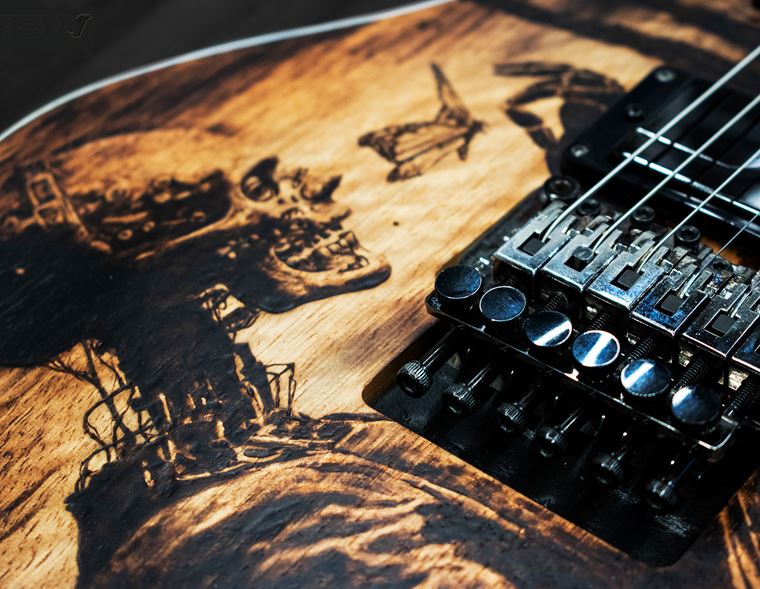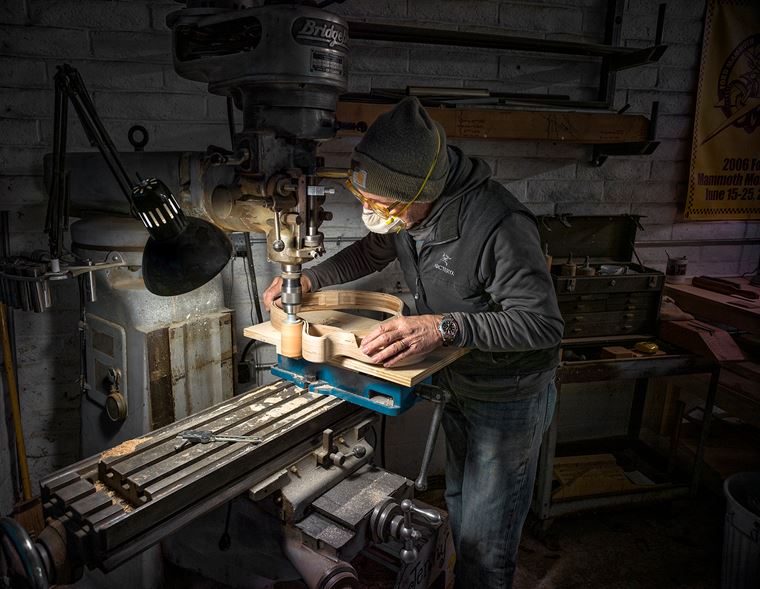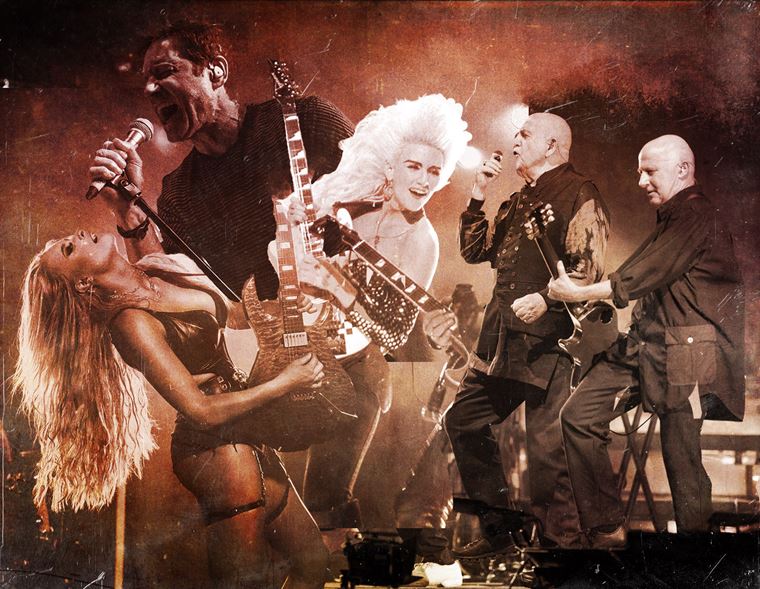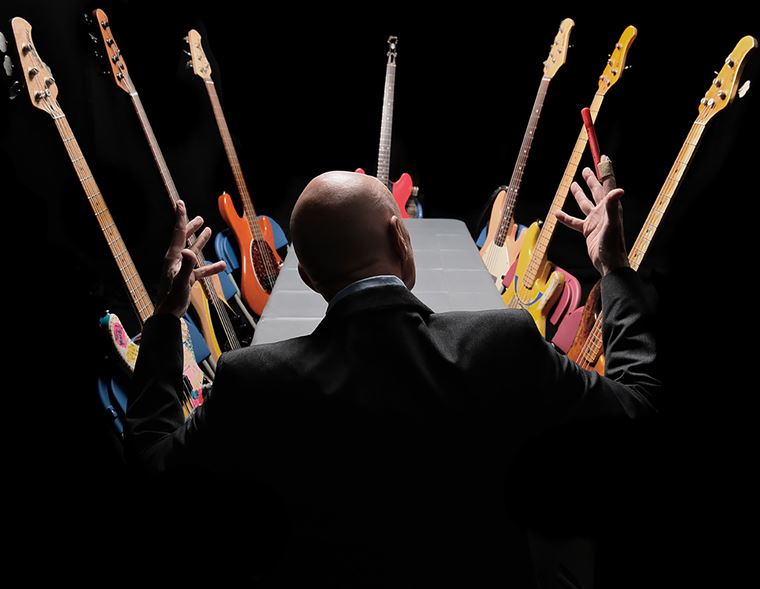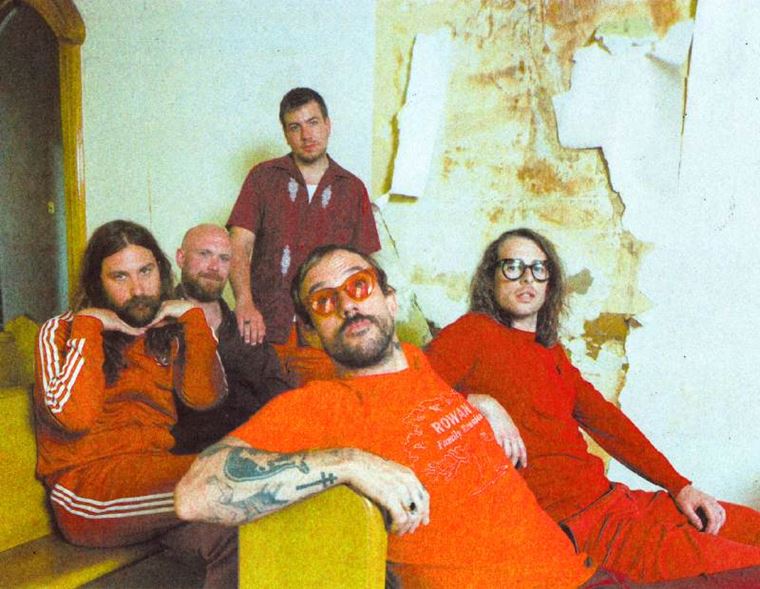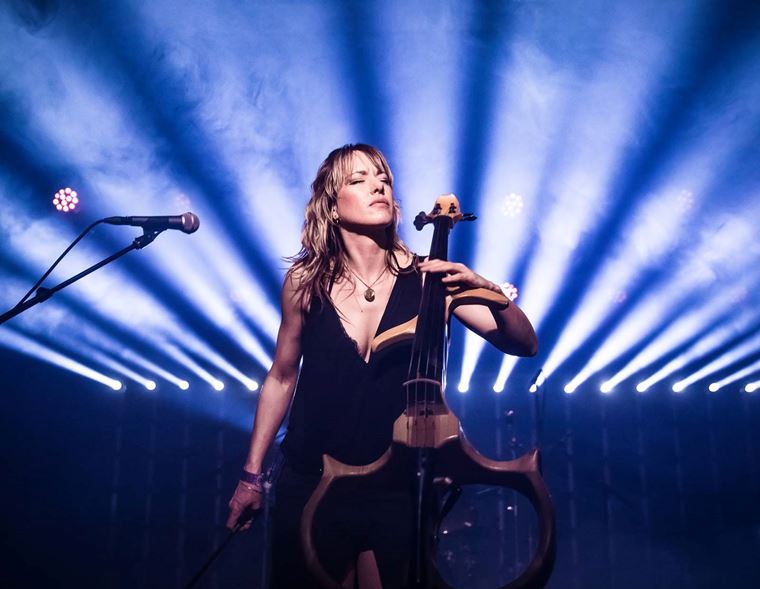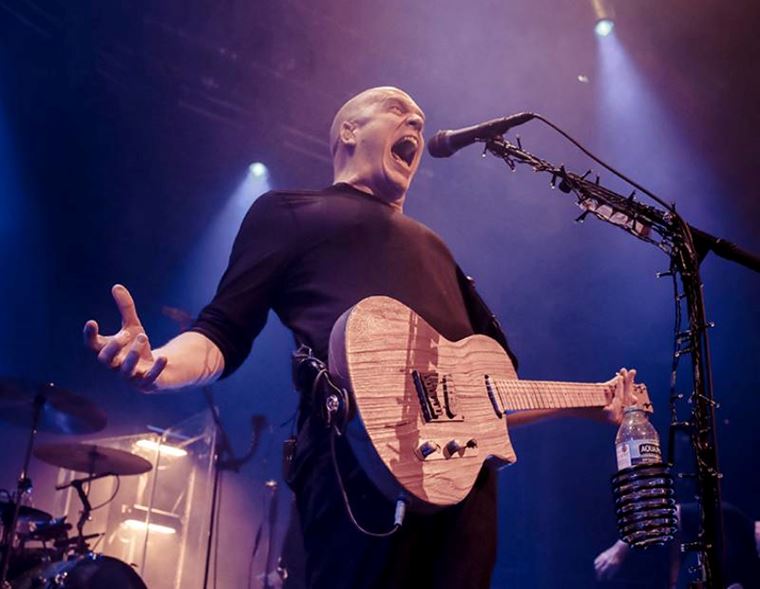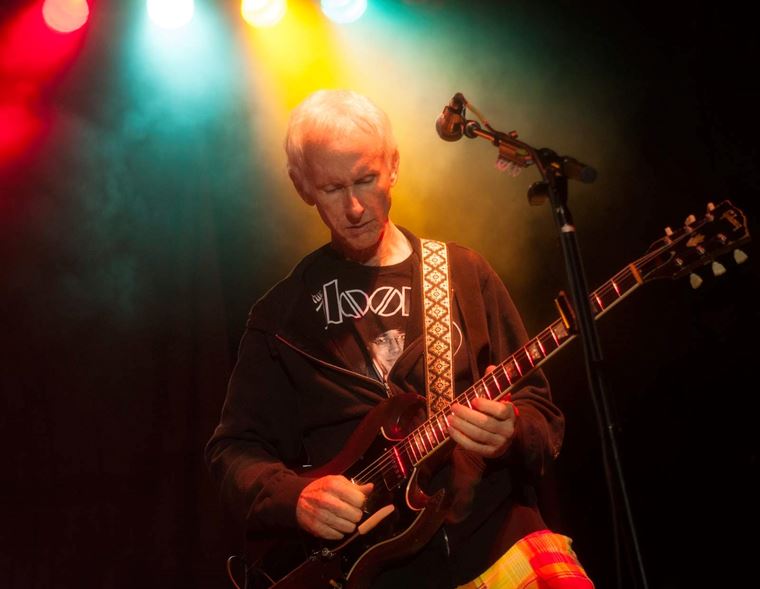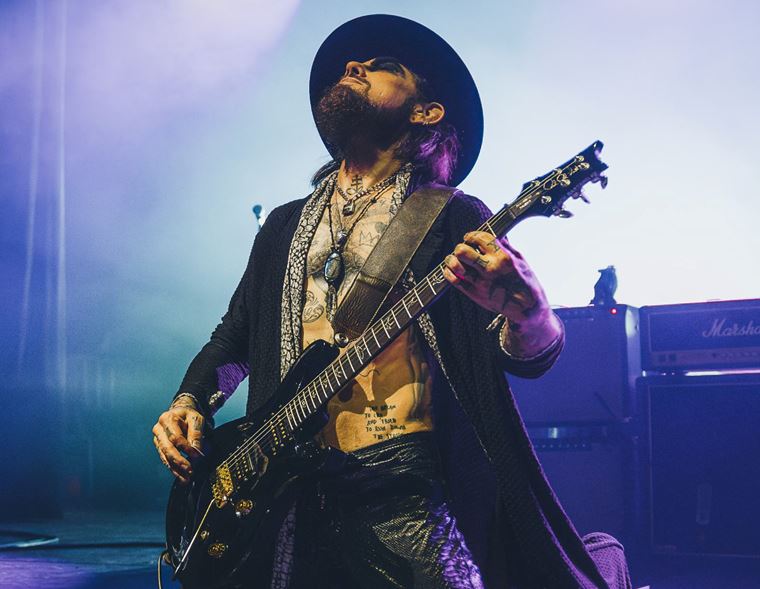The guitarguitar Interview: Jon Gomm
Jon Gomm is one of those musicians that makes you want to go and play your guitar.
He's an immense talent, for sure, but it's in a very inclusive way. There's a positive passion for the instrument there, and that passion infectiously makes it's way through his audiences and listeners.
For nearly two decades, Jon has toured the word as a solo artist. His signature style blends the innovative tapping and harmonics of his heroes Michael Hedges and Adrian Legg with a songwriting sensibility all of his own. Watching Jon play is an extreordinary experience. He uses both hands on the body of his heavuly battered Lowden acoustic, whilst reaching across to detune certain strings mid-performance, using this method to play melodies! All that whilst singing and operating his FX pedals simultaneously!
.jpg)
All of this means that he can represent his music fully as a single performer. Across three albums, his inspiring compositions (and a few choice covers) have blended a myriad of influences and styles, all wrapped up in astonishing techniques and innovative application. His music is very accessible though, as evidenced by a career-helping tweet from none other than Stephen Fry, bringing Gomm's music to a wider audience.
This October sees the release of his newest album, The Faintest Idea, on Kscope records. A wonderul single, Cocoon, brought us a wonderfully tantallising taste of what's to come, and we're excited! So much so, in fact, that we had to get in touch with him for the lowdown! Via some swift emailing, Jon provided us with some excellent, forthright and inspiringly honest answers. We learned a lot, not least an exclusive about his brand new signature guitar! We take in his writing process, his activites during lockdown, and his thoughts on 'finding the evil' in order to get a great acoustic guitar sound! Players of all styles will find much to enjoy and take away from his wise and insightful words, so please have a relaxing read of our email back and forth...
Jon Gomm Interview
guitarguitar: Jon, you are obviously a musician who primarily plays live. How has the COVID lockdown affected you? What kind of things have you been doing during this period instead of performing live?
Jon Gomm: I think it's the same for anyone who's self-employed. The first thing I did was panic, about whether I was gonna be able to pay the bills. I already had loads to do finishing the album, but I've had two tours (one UK clinic tour, and one Italy tour) cancelled, and obviously all the summer festivals. After I stopped panicking, I got on with mixing: My producer Andy Sorenson is in Australia, so I'd receive a track in the morning, then spend the day wandering the streets, headphones on, absorbing the changes and imagining new ones, and then waiting til his evening sunrise to let him know how I felt. It was like living in two time zones. I managed to beg and borrow the gear I needed to do a decent online gig, with nice video and sound quality. And I had a handsome audience, and it felt like a special night, I certainly won't forget it.
GG: Your new single, Cocoon, has just been released and it’s beautiful! It’s about finding the strength to get past your own anxieties for the benefit of your loved ones, right?
JG: Thanks, I'm glad you like it. It's about trying to overcome the anxiety I have for others, so as not to pass the anxiety on to them. yes. I've always been really risk averse, unless I'm in a manic phase of bipolar in which case I have no concept of risk. Either way, I'm incapable of making a reasonable judgement. Now I have a daughter, I want her to be courageous and confident. There's a benefit to be a parent with a mental health condition - You have done so much learning, therapy and self-examination, that you are really self-aware. Hopefully that self-awareness is the shield between my own neuroses, and my child. I kind of think everyone should go into therapy or study some cognitive behaviour training before they become a parent.
GG: You’re obviously a quite incredible guitarist, but on this song, all of that takes second place to the vocals and the actual song itself. Is this the way it should be, in your opinion?
JG: Ha ha! Thanks, I really want people to say that. I am very glad but quite surprised, with a song which features me reaching right across the entire guitar and re-tuning the guitar with my picking hand while playing with my fretting hand, that anyone would say the guitar pyrotechnics have taken a back seat! Honestly I was worried it looked so ridiculous, people would assume it was just for show. But it isn't physically possible to play those notes any other way, I swear!
I write songs, music, the same way away from the guitar as much as possible. There's a lot of singing into my phone and noting down little melodies. Then afterwards, I pick up the guitar and start working on an arrangement. That way, the song is intact, and I can go nuts with the guitar knowing I'm not trying to make the music work around the technique, which would generally end up with something shallow or dull. The technique should always be fitting itself around the core of the music.
GG: Cocoon, is the lead single from the forthcoming album, The Faintest Idea, which is out on October 16th. Can you give us a brief idea of what we can look forward to?
JG: It's a guitar and vocal album, but layered with effects and synths to add depth. Those extra sounds add a different kind of emotional power too. The huge airy space, or the warm organic intimacy. A good friend I played it to said it sounds a bit like Imogen Heap learned percussive fingerstyle guitar. I thought that was a pretty good description.
And I didn't want anything there that detracted from the sound of it being one-person performing. That direct "your mind to my mind, my thoughts to your thoughts" contact of listening to a soloist musician, I didn't want to lose that. So there's no extra percussion sounds, no extra instruments as such, just the synths acting as super-enhanced effects.
I had a strange rule, which was that sometimes if I'm in a pub, and there's a jukebox playing loud enough so you can hear it over the chatter, when an acoustic guitar track comes on, everything vanishes, and all you can hear is the treble "chikk chikk" attack of the picking or strumming. I wanted this record to have body, sonically, so it sounds satisfying.
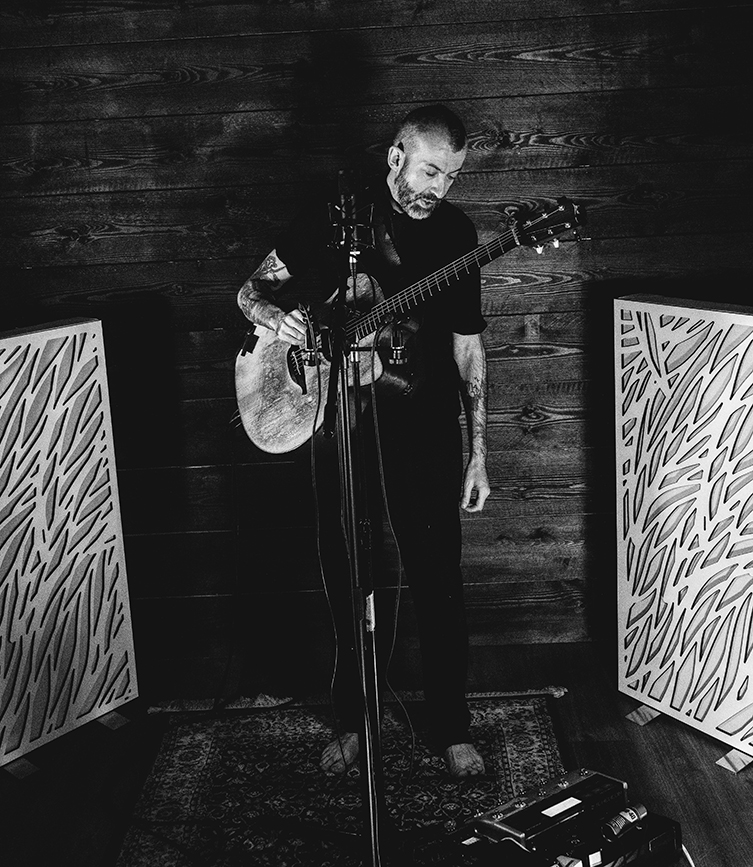
GG: We heard a shocking newsflash recently about you leaving Lowden guitars after 20 years! Can you tell us anything about the company you’ve moved on to, and what the plan is regarding a new Jon Gomm guitar? For instance, will you be developing the hybrid top idea?
JG: Well we're announcing this Thursday - August 20th. So if you publish after that I can tell you! Ha ha! So I've been helping Ibanez develop a guitar specifically for modern fingerstyle. It has a lot of original features - particular fret (gauge and material), particular body shape we developed which is ergonomic for percussive work (and looks cool, and sounds incredible of course), a particular bracing pattern to bring out the fundamentals of the bass notes but also the sparkling harmonics, a particular scale length which lends itself to open tunings, and then I worked with Fishman to develop a pickup system which will be unique to this guitar, and basically gets every sound the strings and soundbox produce in unbelievable fidelity. (See a prototype of this guitar in the Cocoon video above - Ray)
When I was a kid I dreamed of owning an Ibanez. My local music store used to order an extra copy of the Ibanez catalogue for me, so I could take it home and pore of the photos of Steve Vai, Paul Gilbert, Frank Gambale and their exotic instruments. I ended up getting a second hand Washburn N2, the cheap version of the Nuno Bettencourt signature model, but I wanted an Ibanez so much, so I managed to get hold of a neck from a Jem, and I just bolted it onto my Washburn! I had that guitar for years. I had to sell it when I needed money. I miss it so much.
GG: A notable part of your technique is retuning strings mid-song. You got the idea from Earl Scruggs’ banjo playing, is that right? Do you need special tuning pegs to pull this off effectively? Does it take lots of practice to get the pitches correct?
JG: No, Earl Scruggs invented it I believe, but the first person I saw do it was Billy Connolly! I had no idea how he was doing it though, and I think he was playing banjo on a ship or something, on TV! Then I heard Adrian Legg, and bought his video. And then finally I saw Nick Harper live, when I was a student in London in the late 1990s. It was after seeing Nick that I actually bought a set of the locking tuners.
No, it takes zero practice to learn the trick, because the pegs lock. It takes practice to figure out what to do when they unlock unexpectedly, which is usually to panic! I'm an expert at panicking. I do practice with them unlocked sometimes, just for those situations.
GG: You use Blackstar Sonnet amplification. Am I right in saying that you had a hand in the development of these amps? What were you not getting from other amps/PA that you addressed with Blackstar?
JG: The problem I always had with acoustic amps, was that they're either middley sounding electric guitar amps with a slight modification (like an added tweeter or something) and they sound dreadful, or they're really hifi, but they compress the sound horrifically. Because they're letting more bass through, they have to compress it so as not to break the speaker. Blackstar totally understood this problem, and came up with a two-stage compression system, and a sealed, ported cabinet you might expect to find in a studio monitor, so they can reproduce all the majestic bass of acoustic instruments. They sound glorious.
GG: How important is EQ to you? Any EQ tips on carving out a great live acoustic sound?
JG: I love EQ. My tip is, use parametric, and find the evil. Create a narrow peak, with a decent 10dB boost. Sweep it left to right until you find the evil. The nasal-ness. Or the metallic pain. The howl. The boooom. Or the feeback, obviously. Then carefully cut it. Low frequency problems, you'll usually need a wider scoop. High frequencies, you can cut really narrow. After that, you can start to shape the tone to your liking with boosts and shelves. But first: Find the evil.
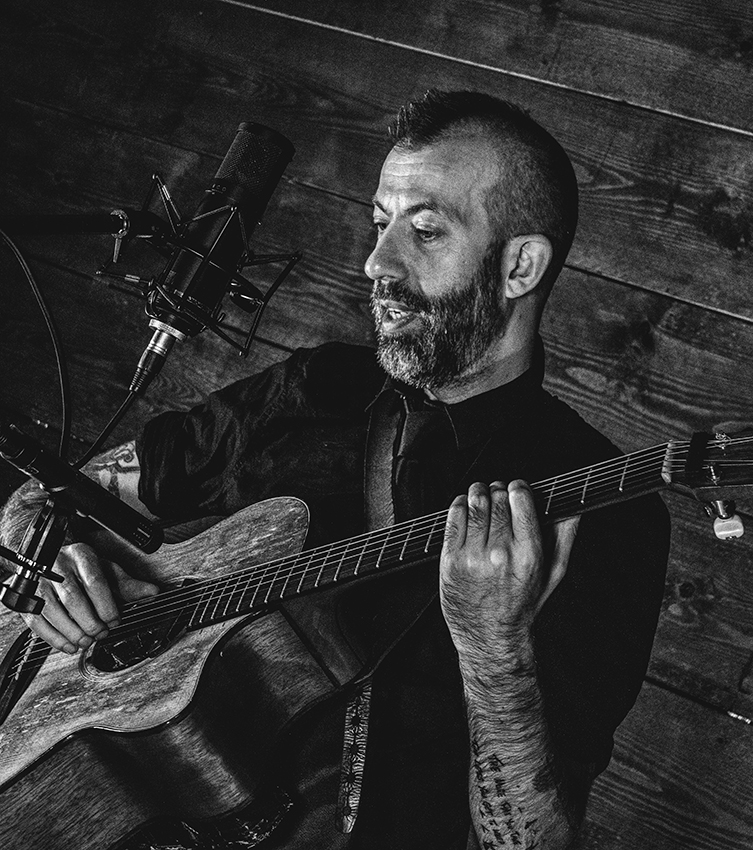
GG: Was Michael Hedges a primary early inspiration for you? I think I noticed a Taproot tattoo on your arm?
JG: Yes, not early as such (I started really young), but I guess when I was about 21 or so I discovered him. So many people I know have had that moment, usually with the album Aerial Boundaries, when you first hear it, this vast expanse of sound from a humble steel-string guitar and the doors in your mind are blown open. It's been life changing. I'm really glad that his vision lives on through new generations of guitarists. I'm sure he'd hate half the music we're all making (I of course hope not mine, but I would never dare to assume!) But as one of his disciples, I am proud for him.
GG: You’ve also spoken in the past about meeting players like BB King and Walter Trout as a kid through your music critic Dad in Blackpool. Does that mean you’re a big electric guitar player too? How often do you pick up an electric guitar? And out of interest, what type do you prefer?
JG: I had my not-Ibanez for years, then I went mostly to a Strat type guitar built from parts. Always being modified with different pickups, different necks, all kinds of stuff. But I struggled to find a unique voice as an electric guitarist. I copied everyone. I was a Joe Satriani clone, a Robben Ford clone for a while, I tried to be a Stanley Jordan clone but that's pretty tough! So I guess when I switched over to acoustic guitar, I was able to find a bit of an identity, still with strong influences, but I had a vision of some kind, and I enjoyed the freedom and control of just loading up my car on my own and heading out to the gig.
GG: You utilise lots of alternate tunings in your music, but what tuning does your main guitar, Wilma, tend to stay in when it’s just sitting around waiting to be played?
JG: My guitar is always just in the tuning of whatever was the last song I played. I made some instructional videos over the past couple of years and every example is in the same tuning, to make it easier for the student. So I find that one pretty comfortable now.
GG: What’s the strangest place you’ve ever found yourself playing a gig?
JG: So many. In a township called Langa just outside Cape Town, South Africa. While I was on tour, we drove from the airport to our hotel in swanky downtown Cape Town. The drive takes you past some huge townships, which are basically slums - living conditions for most people are not great. People may have no running water, no electricity, no floor even; A large family lives in a one-room shack made of found materials with a dirt floor, and one chemical portable toilet to share with dozens of other families. Like many tourists, I couldn't believe my eyes.
As soon as we got to our (very luxurious) hotel I was googling for any music or youth projects happening in these townships, and I managed to get in contact with Happy Feet Youth Project in Langa township. And I offered to visit and play a gig. They used a power cable strung up to a streetlight to power the PA I'd brought. It was quite amazing. I was told some of the younger kids there would never have seen a white person before, which seems impossible so near to Cape Town, but I guess there's still a big divide.
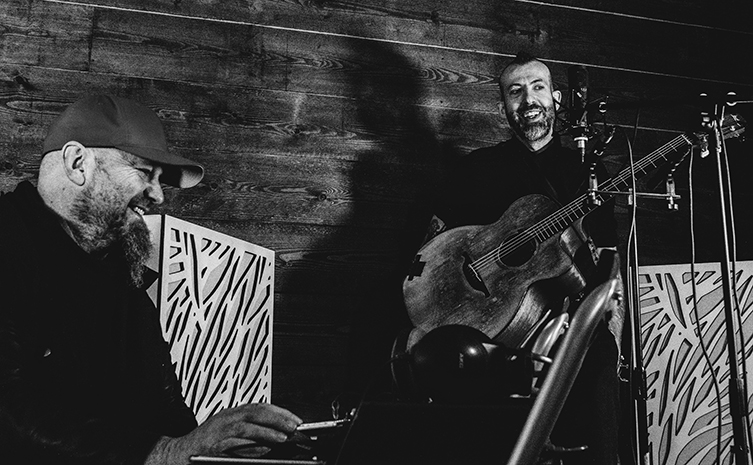
GG: I’ve heard that you prefer to work with independent promoters over the big chains. Does that make life easier or more difficult for you? And does being an independent musician bring you benefits that you’d lose if you were part of a bigger infrastructure?
JG: So in the UK, no. Most venues here are independent. It's easier, more fun and they promote the gigs better. I just pray they survive the pandemic. I believe that the music scene in all 5 nations of the British Isles is the best in the world, at the grassroots level.
Nowadays, I have opened up my definition of "independence" to encompass working with more independent people and companies. So I have a lovely booking agency I work with, called Glasswerk, and I've signed to Kscope records. I'm currently talking to a small music publisher who are based in my village where I live (Saltaire, in Yorkshire). So I'm not alone. I never was: My wife was my manager for years. But without her, I need that help from other specialists in their fields.
GG: You use your hands in lots of unorthodox ways to get all manner of sounds from your guitar. Do you have any special warmups for your hands?
JG: I do. All my warm-ups are on the guitar, actually playing. Scales (or scale-type patterns, often chromatic in reality), arpeggios and a couple of etudes. I usually warm up my voice at the same time. After I finish playing I stretch out my muscles and tendons in my wrists and hands. That's vital.
GG: Do you practise at home (or on the road!) much or do you just play loads?
JG: It depends. I'm my own manager so I spend a lot of time at a screen, and I'm a dad too. Also I have to work around my mental health. I don't play every day. I don't play every week. Every second I am not playing, I am itching somewhere in my mind or in my hands. I am itching to play. That's not some great dedication. It's just the guilt of obsession.
GG: You’ve been a successful solo performer for a long time: do you have any tips you can share with our readers about how to put across a confident and engaging solo performance?
JG: Hmm. Be yourself is the most vague advice ever. But that's what you have to do. Don't be brash if you're not brash. Don't feel some need to speak clearly and boldly, this isn't a fucking management leadership seminar. Be yourself. Be shy if you're shy. If you're nervous, be nervous. Don't try to hide it. I remember a musician once saying to me "But - My dad says I'll make the audience feel nervous." Good - you just made the audience feel an emotion. A lot of musicians never achieve that once in their whole lives. Now use it. Make them feel so nervous for you, they want to curl up and hide. Then show them yourself, when you play. Let them see your emotion, and they will be so grateful that they are not alone, and so will you.
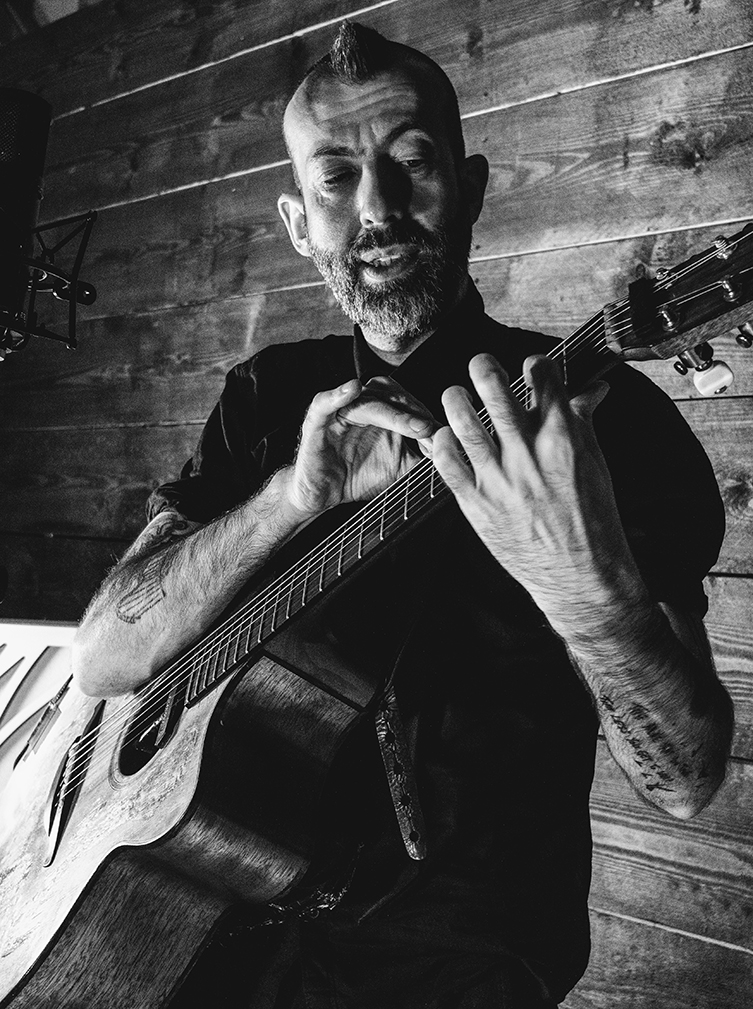
GG: Finally, do you think the acoustic guitar still has a lot of ‘mileage’ for you in terms of unlocking expression? Is it, in fact, infinite in that regard?
JG: Dude, there's so much I can't do. So much I want to do with the guitar. So much I have left to learn. I'll never learn it all. Playing acoustic guitar is like owning a perfectly fascinating book with no ending. When you have the inclination to explore, it's there, waiting for you to open it up. It's good.
What a great set of answers! We can't wait to hear Jon's new album, The Faintest Idea, when it's released on 16th October. For all news on Jon, including news on future tours and an online store to buy video lessons and transcriptions of his music, head on over to the official Jon Gomm website. We'll bring you more news on his Ibanez guitar is we get it!
We'd like to thank Jon for his excellent responses, and to Simon Glacken for setting us up. Thanks for reading, and we'll see you soon for the next guitarguitar interview.


